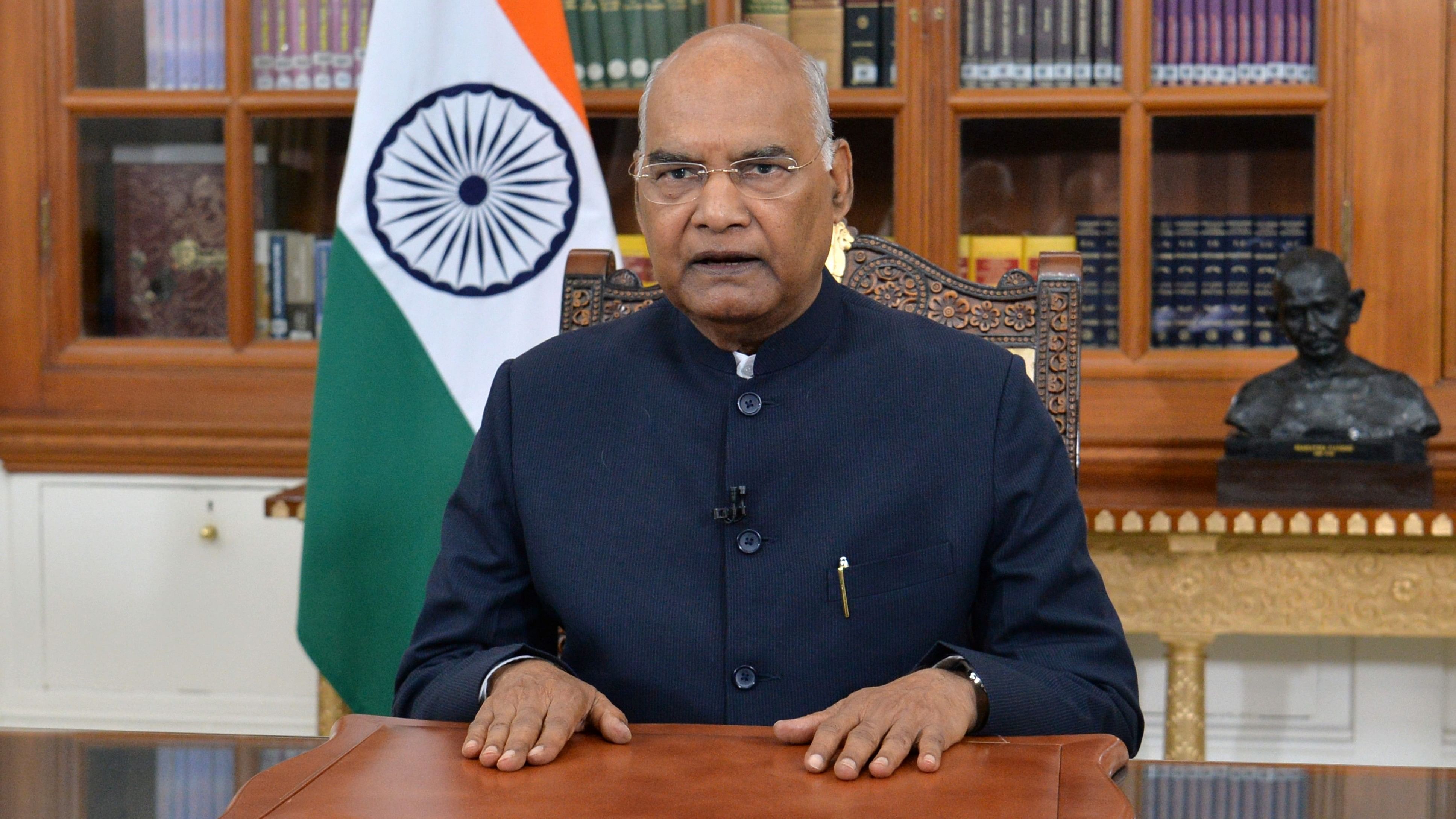
Former President Ram Nath Kovind, who has been tasked with exploring the possibility of holding simultaneous polls in India.
Credit: PTI File Photo
New Delhi: The Ram Nath Kovind-led panel appointed to explore the possibility of 'One Nation, One Election' on Thursday recommended amendments to the Constitution to enable holding simultaneous polls in the country, saying asynchronous elections caused uncertainty and instability, thwarted supply chains, business investments and economic growth, besides causing hardship to citizens.
It said as the first step, simultaneous elections will be held for the House of the People (Lok Sabha) and the State Legislative Assemblies. For this, no ratification by the States will be required for the Constitutional Amendment.
In the second step, elections to the Municipalities and the Panchayats will be synchronised with the House of the People and the State Legislative Assemblies in such a way that Municipalities and Panchayat elections are held within 100 days of holding elections to the House of the People and the State Legislative Assemblies. This will require ratification by not less than one-half of the States, it said.
"Since local body elections touch upon the State subjects (Entry 5) of schedule VII, Part IX, and Part IX A of the Constitution, ratification by the States will be required under Article 368 (2) of the Constitution," it noted.
Similarly, for the purpose of preparation of single electoral roll and electoral photo identity cards (EPIC) for use in elections to all the three tiers of government, amendments in the Constitution were recommended to enable the Election Commission of India (ECI) to prepare a single electoral roll and EPIC in consultation with the State Election Commissions (SECs). These amendments will require ratification by not less than one-half of the States, it said.
In the event of a hung House, no-confidence motion, or any such event, fresh elections should be held to constitute the new House of the People or State Legislative Assembly for the unexpired term of the House of the People, it said.
The Committee recommended that for meeting logistical requirements, the Election Commission will plan and estimate in advance in consultation with the SECs, and take steps for the deployment of manpower, polling personnel, security forces, EVMs/VVPATs, etc., so that free and fair simultaneous elections are held in all the three tiers of the government.
Prime Minister Narendra Modi has on several occasions advocated for the need to explore the possibility of holding simultaneous polls to avoid wastage of time and resources.
The committee noted that simultaneous elections have been drawing attention of political parties and their leaders, policymakers, academicians, industry leaders, businesses, citizens and others.
It noted frequent elections burden the government exchequer with additional expenditure. If the expenditure incurred by political parties is also added, these figures will be even higher.
"Asynchronous elections cause uncertainty and instability, thwarting supply chains, business investments and economic growth. Disruption of government machinery due to asynchronous elections causes hardship to citizens. Frequent use of government officials and security forces adversely affect discharge of their duties and repeated imposition of the Model Code of Conduct (MCC) causes policy paralysis and slows down the pace of the developmental programmes," it said.
Besides, staggered elections induce ‘voters’ fatigue’ and present a significant challenge in ensuring their participation, it added.
